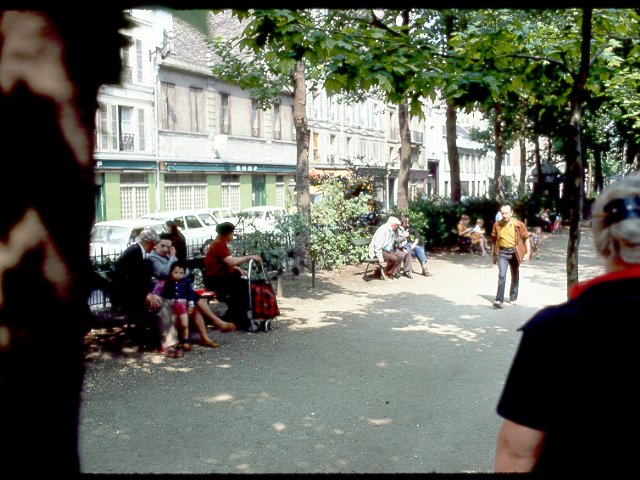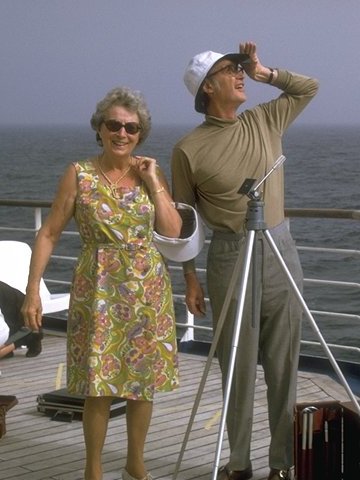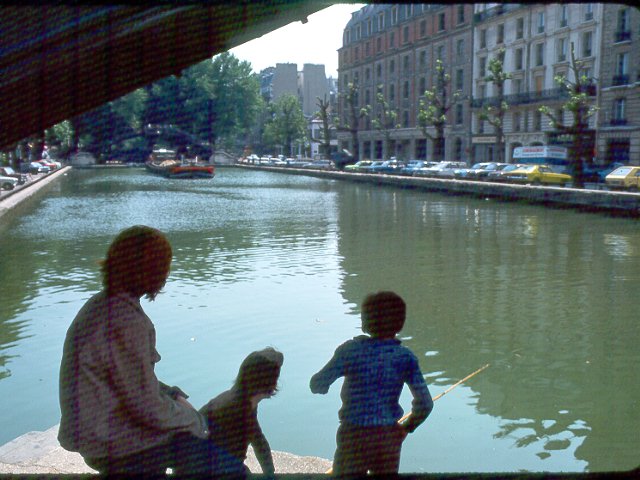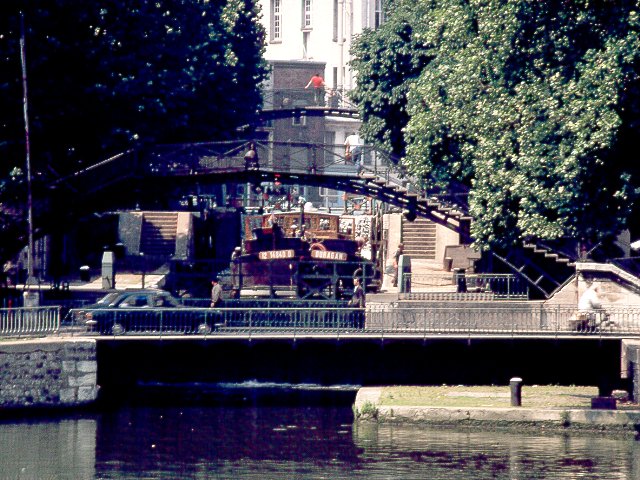Gerard M. Foley
Travel & Photography Collection
Friendly Parisians
Olga Lowman was one of my late wife Ruth's dearest friends. She was a World War 1 War Bride, and was born in Ozoire, a small town east of Paris. It is near the site of the First Battle of the Marne, where the French Army stopped the German advance into France in 1914. Olga was a secretary on the staff of the AEF in Tours when she met an American sergeant. After the war they married. Frank died during WWII, and Olga, now a skilled social worker, returned to Europe after that war to work for UNRRA, Save the Children and the Tolstoi foundation.
Olga and Ruth had met when both were working for the Federal Emergency Relief Administration during the depth of the Great Depression. Olga was somewhat responsible for Ruth and I meeting. Whenever we could travel to Europe we tried to visit Olga in her Paris apartment. The photograph above was taken when Olga joined us on a cruise to the line of the total solar eclipse in the Atlantic Ocean off the coast of Mauretania in 1973.
A mutual friend, Mario Haniotis, who lives in Paris, telephoned us in Philadelphia in June, 1975. He told us that Olga was critically ill in a hospital, and that we would have to come quickly if we were ever to see her again. We immediately made a reservation to fly to Paris the next day. Then we discovered that Ruth's passport had expired!
Like everyone else in this tragic situation, the U.S. State Department was very helpful. We got Ruth's passport in the morning, and started to drive to Kennedy airport in the afternoon. As we crossed the Goethals bridge to Staten Island the heavens opened. I have rarely seen a heavier rain. To discover if the weather was interfering with travel on the roads to the airport, I turned on the car radio. Every station was full of the news that a 727 aircraft coming from Atlanta had crashed on its approach to JFK, and that probably everyone aboard had been killed. Most of the roads in southwestern Long Island were closed to all but emergency vehicles.
The disaster at the airport had delayed all flights, and when we got to the terminal we were offered space on a flight scheduled to leave earlier than the one we had been ticketed on.
Ruth woke in the middle of the night asking "Why am I sleeping in this movie theater?" It was our first flight in a 747.
The hospital Olga was in was in the eastern section of Paris, near the Place de la Republique and the Bastille, a working class neighborhood. We found a room in a hotel on the Place , which I later found had been a WWII barracks for a close friend who was in Patton's 3rd Army.
Olga and we had frequently spoken of the common American impression of the French as rude and distant. Olga's response was always "But my dear, you should know how they treat each other!" On this sad trip we found Parisians could be most friendly and helpful people.
There may be ugly places in Paris, but I haven't found many. Our walks to Olga's hospital were lovely.

A Paris Working Class Boulevard

Panama and Sault Ste. Marie are not the only places with locks which work
The Hospital St. Louis was built in the reign of Henry IV to house victims of the plague. When we came to it we found the staff were not much more fluent in English than we were in French. Olga was in a coma, but we knew that she recognized our presence because she tried to speak in English. We were told that she had periods of greater consciousness, and that we should feel free to visit any time during the 24 hours, day or night.
Although we had to return home, the chemotherapy which was largely responsible for Olga's coma was temporarily discontinued. We had a very nice visit with her. The therapy was so effective that she recovered enough to spend the next six months in an Alpine establishment (with a woman friend, all courtesy of French Social Security), before she passed away peacefully. This, I am afraid, is the happiest ending which such tales as this can have.









